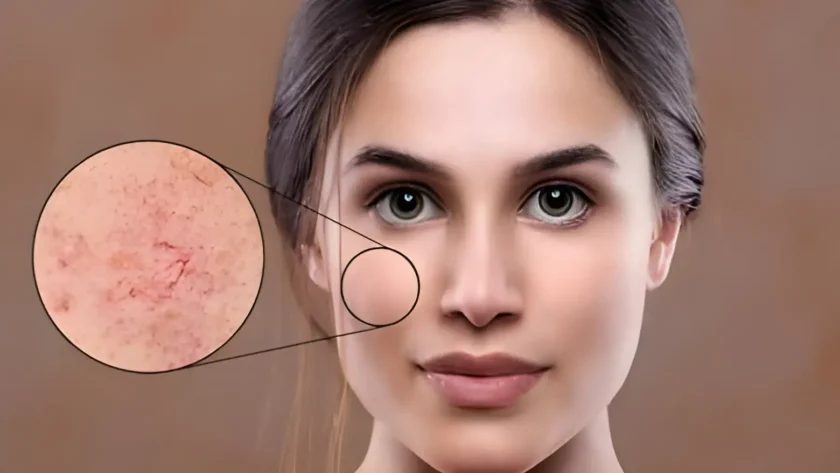Skincare can be a journey full of trials and errors, especially when dealing with common skin complaints like dryness, oiliness, acne, and sensitivity. Understanding the signs and learning how to treat these issues is crucial for achieving a healthy, radiant complexion. Here’s a comprehensive guide to help you navigate these common skin woes.
Dry Skin
Signs: Dry skin often feels tight, rough, and can appear flaky or scaly. It may also be accompanied by redness and itchiness, particularly in cold weather or after exposure to harsh, dry environments.
Treatment: The key to managing dry skin is consistent hydration and moisture retention. Here are some tips:
- Gentle Cleansing: Use a mild, non-foaming cleanser to avoid stripping the skin of its natural oils. Look for ingredients like glycerin and hyaluronic acid which help retain moisture.
- Moisturizing: Opt for a rich, emollient moisturizer that includes ingredients like ceramides, shea butter, and squalane. Apply it immediately after cleansing to lock in moisture.
- Hydrating Serums: Incorporate serums with hyaluronic acid or vitamin B5 to boost hydration levels.
- Humidifiers: Consider using a humidifier at home to add moisture to the air, which can help keep your skin hydrated.
Oily Skin
Signs: Oily skin is characterized by an overproduction of sebum, leading to a shiny appearance, enlarged pores, and a propensity for acne and blackheads.
Treatment: Balancing oil production without stripping the skin is essential:
- Cleansing: Use a gentle, foaming cleanser with salicylic acid or benzoyl peroxide to help control excess oil and prevent breakouts.
- Oil-Free Moisturizer: Even oily skin needs hydration. Choose a lightweight, oil-free moisturizer that won’t clog pores.
- Clay Masks: Incorporate clay masks into your routine once or twice a week to absorb excess oil and minimize pores.
- Blotting Papers: Carry blotting papers to absorb excess oil throughout the day without disturbing your makeup.
Acne-Prone Skin
Signs: Acne-prone skin often features persistent pimples, blackheads, and whiteheads. It may be inflamed and sensitive to various skincare products.
Treatment: A multi-faceted approach is necessary for managing acne:
- Cleansing: Use a gentle cleanser with salicylic acid to keep pores clear of debris and bacteria.
- Spot Treatments: Apply spot treatments with benzoyl peroxide or sulfur to target individual pimples.
- Non-Comedogenic Products: Ensure all skincare and makeup products are labeled non-comedogenic to avoid clogging pores.
- Regular Exfoliation: Exfoliate with products containing alpha hydroxy acids (AHAs) or beta hydroxy acids (BHAs) to remove dead skin cells and promote cell turnover.
Sensitive Skin
Signs: Sensitive skin reacts easily to environmental factors and certain skincare products, resulting in redness, itching, burning, or dryness.
Treatment: The focus should be on soothing and protecting the skin:
- Hypoallergenic Products: Choose products that are free from fragrances, dyes, and alcohol.
- Barrier Repair: Look for ingredients like ceramides and niacinamide that help repair and strengthen the skin barrier.
- Sun Protection: Always use a broad-spectrum sunscreen with SPF 30 or higher to protect sensitive skin from UV damage.
- Patch Testing: Before using new products, perform a patch test on a small area of skin to ensure it won’t cause irritation.
Combination Skin
Signs: Combination skin typically exhibits both dry and oily areas, with the T-zone (forehead, nose, and chin) being oily and the cheeks being dry.
Treatment: A tailored approach is required to address the different needs of combination skin:
- Dual Cleansing: Use a gentle cleanser that can remove excess oil without over-drying the skin.
- Targeted Treatments: Apply products selectively; use oil-control treatments on the T-zone and richer moisturizers on dry areas.
- Balancing Moisturizer: Choose a moisturizer that is hydrating yet lightweight, avoiding heavy, greasy formulas.
For those looking to elevate their skincare routine, brands like SkinGym offer a variety of innovative products designed to target specific skin concerns. Whether you’re dealing with dryness, oiliness, or sensitivity, incorporating quality skincare products into your routine can make a significant difference.
Remember, achieving your best skin is a journey that requires patience and consistent care. By understanding your skin’s unique needs and using the right products and techniques, you can tackle any skincare complaint with confidence.









